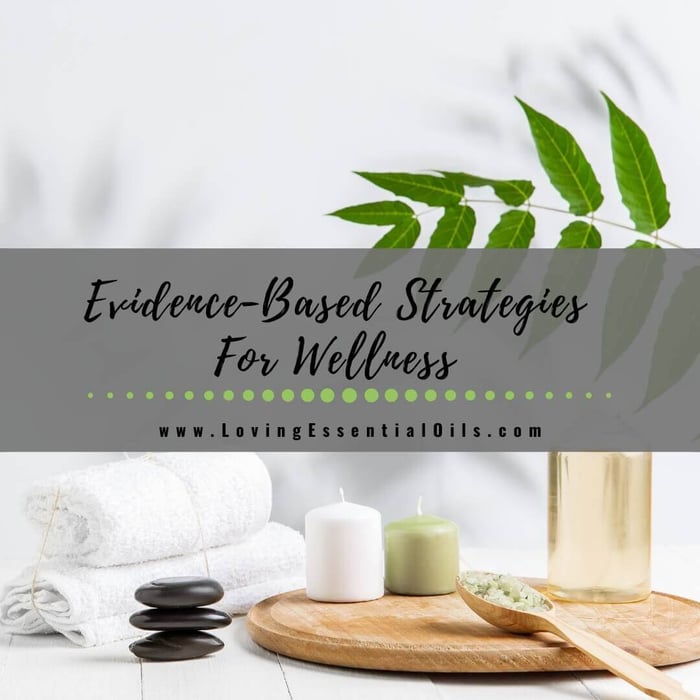Embarking on a health improvement journey can be both exhilarating and daunting. As you sift through the vast sea of wellness advice, rest assured that this blog will illuminate your path with science-backed strategies, tailored to enhance your well-being.
Let it navigate the evidence together and transform the way you approach health, one evidence-based step at a time.
Balanced Nutrition
Balanced nutrition is the cornerstone of health and wellness, essential for the body’s optimal functioning. It involves consuming a variety of nutrients in the correct proportions, which sustain all bodily processes, from energy production to cellular repair. A diet rich in a balance of carbohydrates, proteins, fats, vitamins, and minerals bolsters the immune system, reduces the risk of chronic diseases such as diabetes, heart disease, and obesity, and promotes mental health.

Furthermore, adequate hydration and dietary fiber are critical components of balanced nutrition, aiding in digestion and nutrient absorption. Apart from that, you can also use supplements to compensate for certain nutrients you're lacking. Consuming peptides for gut health will help to balance your gut microbiome, while a vitamin D supplement can fill any gaps in your diet.
All these elements work together to nourish and optimize your body, making balanced nutrition an essential pillar of health improvement.
Adequate Sleep
Adequate sleep is a vital component of health and wellness, acting as the body's restorative cycle. During sleep, the body repairs tissues, synthesizes proteins and releases hormones crucial for growth and appetite regulation. Quality sleep strengthens the immune system, enhances cognitive functions like memory and problem-solving, and regulates mood, staving off mental health issues such as depression and anxiety.
Lack of sleep, conversely, elevates the risk of chronic conditions, including heart disease, obesity, and diabetes, by disrupting metabolic processes and hormonal balance. Prioritizing sleep is, therefore, not just beneficial but necessary for maintaining and improving overall health and wellness.
Mind-Body Practices
Various mind-body practices will help you achieve optimal health. These are the following:
- Meditation
- Yoga
- Tai chi
- Pilates
- Biofeedback
- Breathwork
- Guided imagery
- Progressive muscle relaxation
- Hypnotherapy
- Art and music therapy
- Qi Gong
Mind-body practices are a keystone for health improvement, harmonizing both the mental and physical aspects of our well-being. They foster stress reduction, improve mental clarity, and enhance resilience against life's pressures.
Engaging in these activities can lead to reductions in heart rate and blood pressure, a relaxed state of mind, and better coping mechanisms in stressful situations. By integrating mind and body, we can tap into greater self-awareness, emotional balance, and a holistic sense of wellness, which is crucial in today's fast-paced world.
Regular Physical Activities
Regular physical activity is an essential part of a healthy lifestyle, proven to improve both mental and physical health significantly. Engaging in regular exercise helps to maintain a healthy weight, lowers the risk of chronic diseases like type 2 diabetes, cardiovascular disease, and certain types of cancer, and can enhance the function of the immune system.
Physically active individuals also experience better sleep patterns and have higher levels of energy.
Additionally, the psychological benefits are substantial; exercise releases endorphins, which act as natural mood lifters, reducing feelings of stress and anxiety. By incorporating consistent physical activities into one’s daily routine, an individual can increase longevity and improve quality of life, promoting overall wellness and vitality.
Stress Management
Chronic stress can trigger an array of negative physiological responses, such as elevated blood pressure, suppressed immune function, and increased risk of heart disease. Additionally, it can undermine mental health, leading to conditions such as anxiety and depression.
Effectively managing stress through techniques like mindfulness, deep breathing exercises, or physical activity counteracts these harmful effects. It promotes relaxation, improves cognitive function, and supports emotional equilibrium.
By prioritizing stress management, individuals can enhance their overall health and well-being, creating a more balanced and fulfilling life.
Social Connection
Social connection is a fundamental aspect of improving health and wellness, as it is intricately linked with both our mental and physical well-being. Building and maintaining strong relationships with family, friends, and the community provides emotional support, reduces stress, and promotes a sense of belonging and purpose.
Studies have shown that individuals with robust social ties tend to live longer and have a lower risk of developing mental health issues such as depression and anxiety.
Moreover, social connections can influence healthy behaviors by providing encouragement and accountability for maintaining a healthy lifestyle. They also offer a buffer against the health consequences of adversity through shared experiences and emotional support.

In your quest for optimal health, embrace these evidence-based practices with an open heart and mind. Remember, your journey is unique. Nurture your body, prioritize rest, connect deeply, and find joy in movement and mindfulness. Start today, and let each small step propel you towards a vibrant, healthier you.






